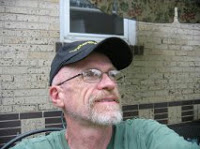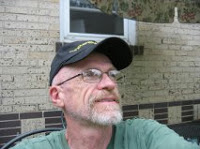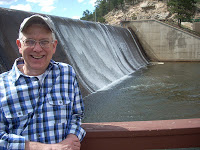The truth is I am a very lazy writer when it comes to putting fingers to keyboard and coming up with something for our weekly SAGE topics. I genuinely feel that my story, at least from a historical perspective, has pretty much been shared with the group. The format we use though has been very stimulating for remembering many past events and antics from my past particularly it seems from the 1960’s and 1970’s.
The truth is though I have much less to write about particularly from the mid 1980’s to the present. I seem to have experienced a diminution of involvement even in activities that seem to land right in front of me and ask for active participation on my part.
The truth is I am not exactly sure why this has happened but I can speculate I suppose. Maybe it is just a matter of getting older. I am getting older like it or not. As I rapidly approach my 70th birthday the truth is … that seems quite amazing to me. I know I am speaking to many folks here quite a bit older and am perceived by some of you as just a youngster. However, I do appreciate how remarkable it is really for someone infected with HIV in the early 1980’s to still be around and often griping about what are really first world problems. An example of a very vexing first world problem for me would be my bemoaning the fact that my neighborhood Whole Foods Market closed last fall and moved to LoDo. I mean really how I suffer so having only a King Soopers, a Safeway, a Trader Joe’s and a Natural Grocers all within easy walking distance.
The truth is I have been infected with HIV for at least 33 years, having tested positive in the summer of 1985. I strongly suspect though I came in contact with the virus and it set up shop in early 1981 making it 37 years, more than half of my life on Earth.
What is my secret to this longevity you may ask? Well the truth is I have no fucking idea. Beyond just maybe being one lucky son-of-a–bitch I can quickly rule out a few reasons right off the bat. It was most certainly not any sort of strong religious faith or conviction. I am an atheist and a half-assed Buddhist practitioner on my best days. Diet and exercise have always been important to me at least on an intellectual and philosophical level if not in my daily eating habits. Saturated fat and high dose sugar input in the form of gourmet ice creams indulged in freakishly often have done little I suspect in keeping my immune system in tip-top shape.
There is no doubt the HIV meds are the main reason I am still here and I do take them religiously. The truth is though that they are slowly accelerating many of the health problems driven by the dietary-fueled metabolic derangement so endemic in American life today with diabetes, stroke, dementia and heart disease being several prominent ones.
One possible current saving grace when it comes to my many dietary indiscretions is that the grocer closest to me is Trader Joe’s and their absolutely crappy ice cream selection. Talk about a first world problem, hey?
The truth is really when looking at my long-term HIV/AIDS survival that it is clearly related to my privilege. I am a white guy in a part of the world where the problems I face are really first world ones. I have been the beneficiary of many forms of privilege that have allowed me to coast for much of the past 37 years with relatively easy access to cutting edge HIV treatments and medications. That white privilege does unfortunately still play a huge role in HIV disease even today in the United States as reflected by the disproportional rate of new HIV infections. African American gay and bisexual men face a one–in-two chance of being infected in their lifetime. The same risk for white gay men is one in eleven.
The truth is I am skating on pretty thin ice needing to continue toxic but necessary HIV chemotherapies and having numerous metabolic derangements undoubtedly accelerating my inevitable demise. So what keeps me going? Well not to in any way be pandering this group has been one. I find great solace in participating in a group whose existence is facilitated by the same organization I became involved with in 1976. The truth is where would I be without you?
© April 2018
About the Author
I was born in La Porte, Indiana in 1949, raised on a farm and schooled by Holy Cross nuns. The bulk of my adult life, some 40 plus years, was spent in Denver, Colorado as a nurse, gardener and gay/AIDS activist. I have currently returned to Denver after an extended sabbatical in San Francisco, California.









